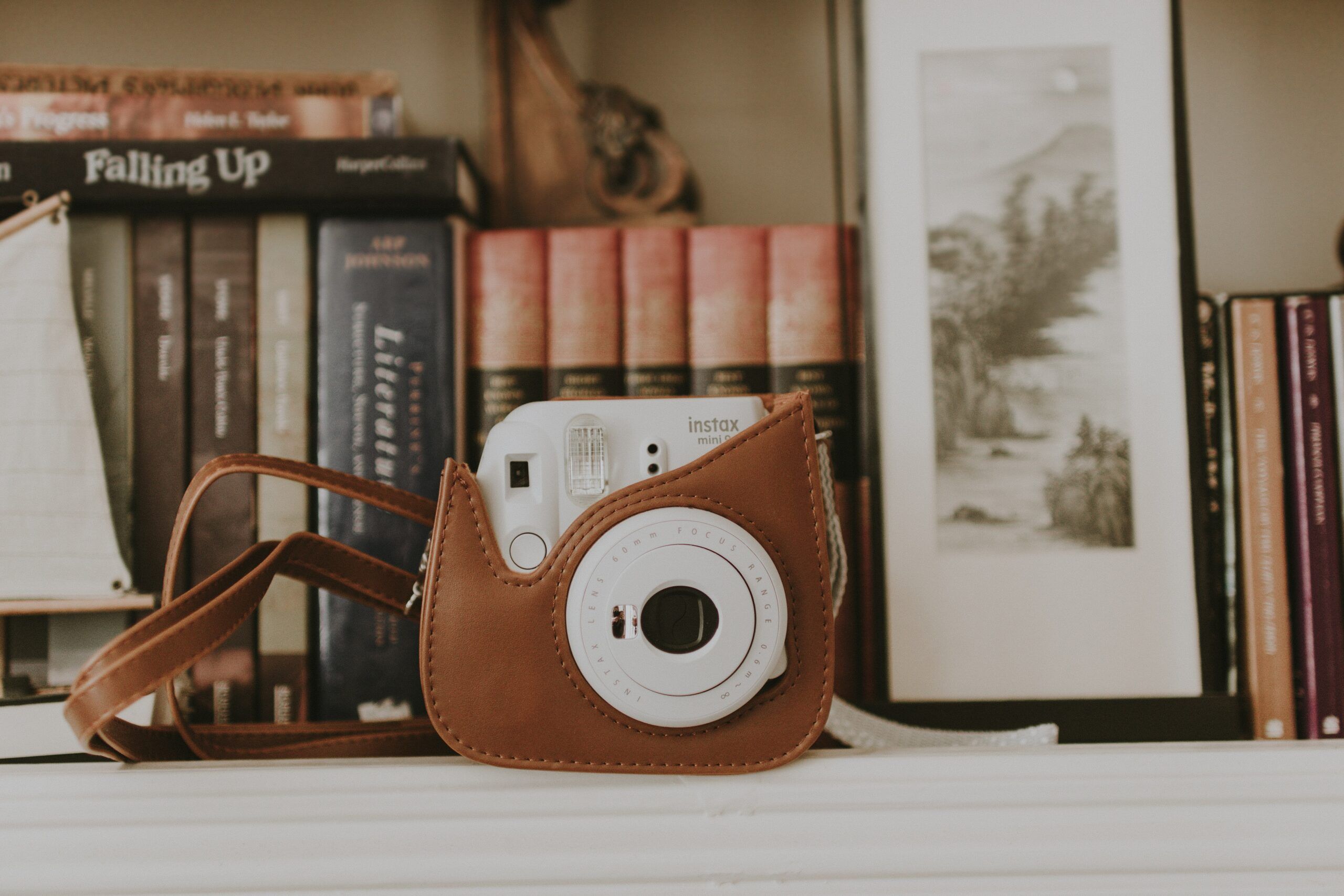How to Sell Books on Etsy: Operations
Leave No Stone Unturned
This is almost too obvious for words, but one of the easiest ways to find success on Etsy right off the bat is to familiarize yourself with the tool. From handling money to renewing listings and selling ads, Etsy has developed over the years to be hugely supportive to its sellers. By filling out as much of your profile as you can (and trust me — Etsy makes it very painless) you’re starting out on a strong foot. The same absolutely goes for filling out product details. Every additional bit of information you can add makes your product easier to find for a buyer, and helps Etsy’s search feature. Even if you’ve included every possible bit of information in the typed product description, fill out the relevant details in the rest of the product editor, too. For more, read this detailed guide on filling out your Etsy profile.
Access Strategic Tools
The internet has given us some absolutely amazing tools, and you’d be remiss not to access them to the fullest extent. From graphic design to shipping labels, if you can think of something you need for your shop, you can almost certainly outsource it for free (or affordably) via the internet.
Price Adequately
While it can be tempting to offer wares at rock bottom prices to sell, if the model isn’t sustainable, your shop will never survive. You can determine pricing with four steps:
- Calculate the time it took to create the item you’re selling
- Total the value of all the materials you’ll need to create it
- Consider the time and money you spent developing the skills necessary to make the item
- Research the price of comparable items on Etsy For example: say you’re selling resin bookends with flecks of gold leaf. Let’s say you have enough molds to make ten bookends at a time (for five sets total), and it takes you two active hours to make them — one hour to melt, mix and pour the resin, and an additional hour to sand and seal them. How much did the resin and gold leaf cost you? How about the pan to melt the resin, the molds to set them, the sand paper? Similarly trendy bookends go for $40–50. Consider your special expertise. Did you make your own molds? Are you adding special touches learned at art school? All of these things factor into your price. You can learn more about pricing on Etsy specifically here. Pricing self-published books is an entirely different can of worms which you can read about here.
How to Sell Books on Etsy: Marketing
Who Are You?
Before you open your shop, you need to establish a cohesive brand image. “Easy” you may think. “Books.” But, to shamelessly rip off Tolstoy, if there are as many minds as there are heads, then there are as many books as there are readers. Home in on your particular area of expertise and interest. Doing this ensures two things: 1. You’ll be operating from a place of strength and 2. You’ll be operating from a wellspring of creative interest. It’s important that the content of your shop reflects you and your interests, and that you fit industry trends to your aesthetic and not vice versa. When deciding how to sell books on Etsy, ask yourself the following questions: what are my favorite genres? What is the associated aesthetic with each genre? What are my particular creative strengths? How can I marry my strengths with my interests? For example: one bookish brand may trend towards the witchy and earthy, all crystals, vintage leather, and dried herbs. Another shop may veer more cottagecore, replete with white eyelet fabric and regency silhouettes. Making a mood board can assist in this task.
Even if it’s Not You…
This is especially important if you are selling your own self-published books. If you write wacky mysteries a la Janet Evanovich, you’ll use different language and imagery than if you write wholesome modern romances like Jasmine Guillory. Everything from the language in the description to the colors you use in your cover design should tie in to your shop image. If you’re reselling items, such as antique or collectible books, this rule still applies. Just as many vintage clothing shops stick to a favored era (’80s band tees, ’50s party dresses, etc.), narrowing down the genre or era of books you sell will bring you repeat buyers, because they know they can count on you for a specific type of product.
Consider Your Presentation
Picture two candles: both are in ivory frosted glass jars with cork lids. In one display photo, the candle is set against a soft grey background with a sprig of eucalyptus tossed casually next to it. In the other, the candle is resting on a dirty bathroom counter smeared with makeup and discarded cotton swabs. Which photo would make you want to buy the candle more? No one on Etsy expects you to have Anthropologie-quality photos, but they should be clear, clutter free, and display your product accurately. Listings do best with multiple photos, and you can even add videos of your product! This Rioter’s tips on Bookstagramming well are great tips for all book photography. It’s a good place to start if all you’re armed with is a smartphone camera and ingenuity.
Don’t Forget About Ads
While many can’t afford to buy ads at the outset, consider buying ads as part of your business model down the road. As Etsy becomes more and more crowded every day, buying an ad can bump your product up to page 1 or 2 of search results. Any later, and your products might get lost in the shuffle. Etsy also handles offsite ads; where they’ve bought ad space on other websites, they promote products from the site, meaning your things can get reach far beyond Etsy.
How to Sell Books on Etsy: Avoiding Pitfalls
Stay Above the Law
It should go without saying but I must anyway: if you are selling merchandise that’s directly associated with a specific book or fandom that’s under active copyright, you probably shouldn’t. The more popular the fandom, the more likely they are to sue you for copyright infringement.
While many artists cite fair use to sell their fanart, it can be difficult to defend in court. If you’re really dedicated to selling merchandise based on a specific fandom, you can always reach out to the author or their team for permission — the more specific the better! Get your permission in writing, merely citing the original source is not enough.
Check Etsy’s guide to fair use, as well as this breakdown of copyright infringement on Etsy.
Determine Your Shop Policies
From the other side of the legal argument, you want to make sure your shop is appropriately protected against copyright infringement. Once your items are on Etsy — bam, they’re copyrighted and protected as such! If you see an item that looks ~suspiciously~ close to yours, you can file a report with Etsy. Luckily you don’t have to use your precious resources on litigation. Keep in mind that it can sometimes be difficult to prove a product is infringing on your copyright if there are lots of similar items. If you’ve hand drawn wildflowers on a wooden bookmark for example, another wooden book mark with flowers on it doesn’t infringe on your copyright, but a shop that uses your exact photos does.
Follow-Up is Key
That means clear return and customer policies are crucial. Not only does it keep you in good standing with you customers, it keeps you in good standing with Etsy. The default return policy on Etsy is an excellent guideline. However, it’s crucial that you follow it. Think about what you can honor financially and physically. Additionally, make sure you check your messages frequently. From requests for custom items to problems with shipping, it’s crucial you answer customer questions as quickly as you can. It’s okay to have boundaries (for example, no answering messages after 5 p.m.) but it’s best to answer all messages within two business days. Keep your messages short, friendly, and accommodating and you’ll have success. Don’t be afraid to ask for a review if you feel an interaction was solved well! This is simply a beginner’s guide to how to sell books on Etsy. If you need some inspiration for listings, check out some book fetish items here.













































